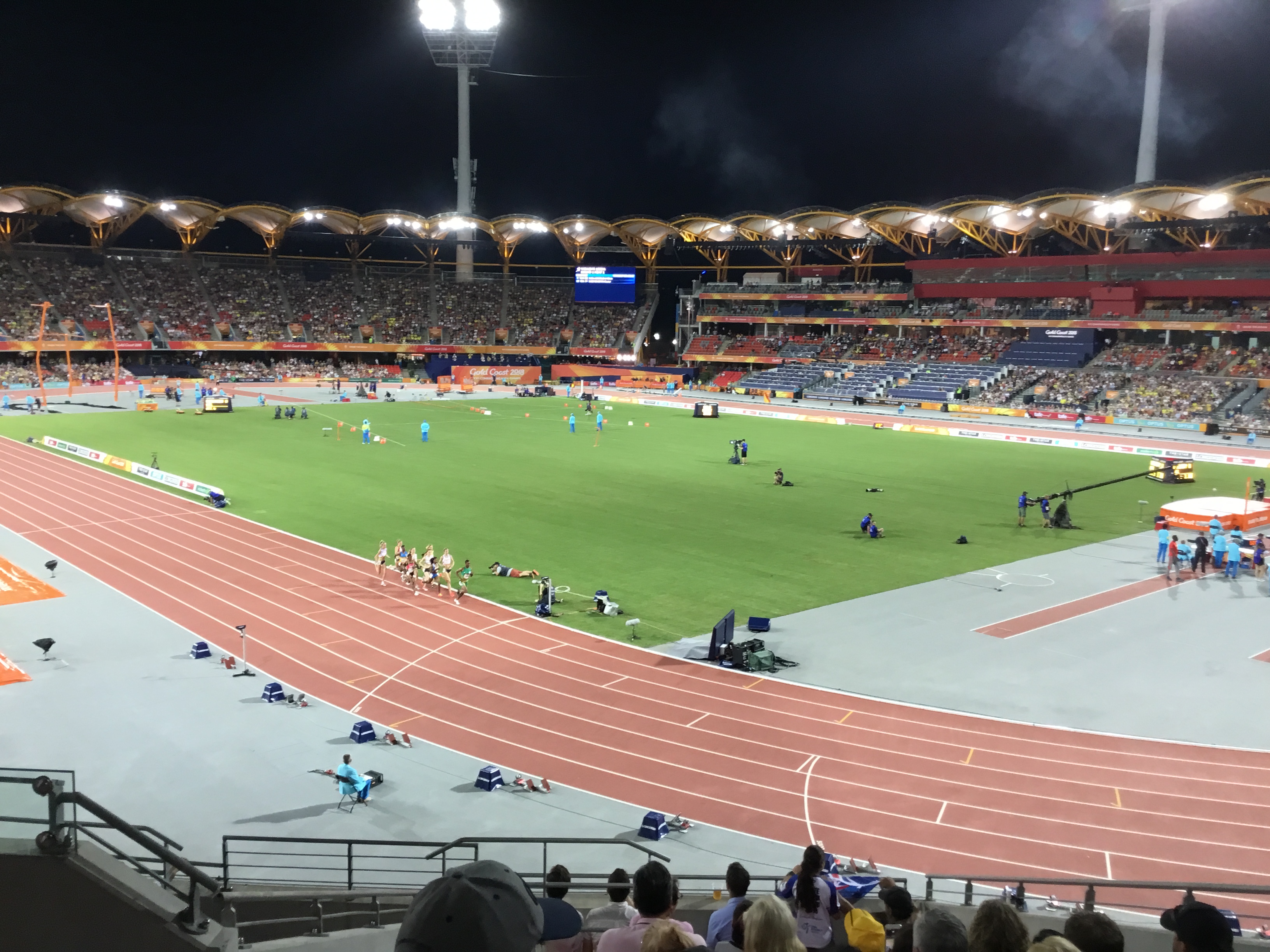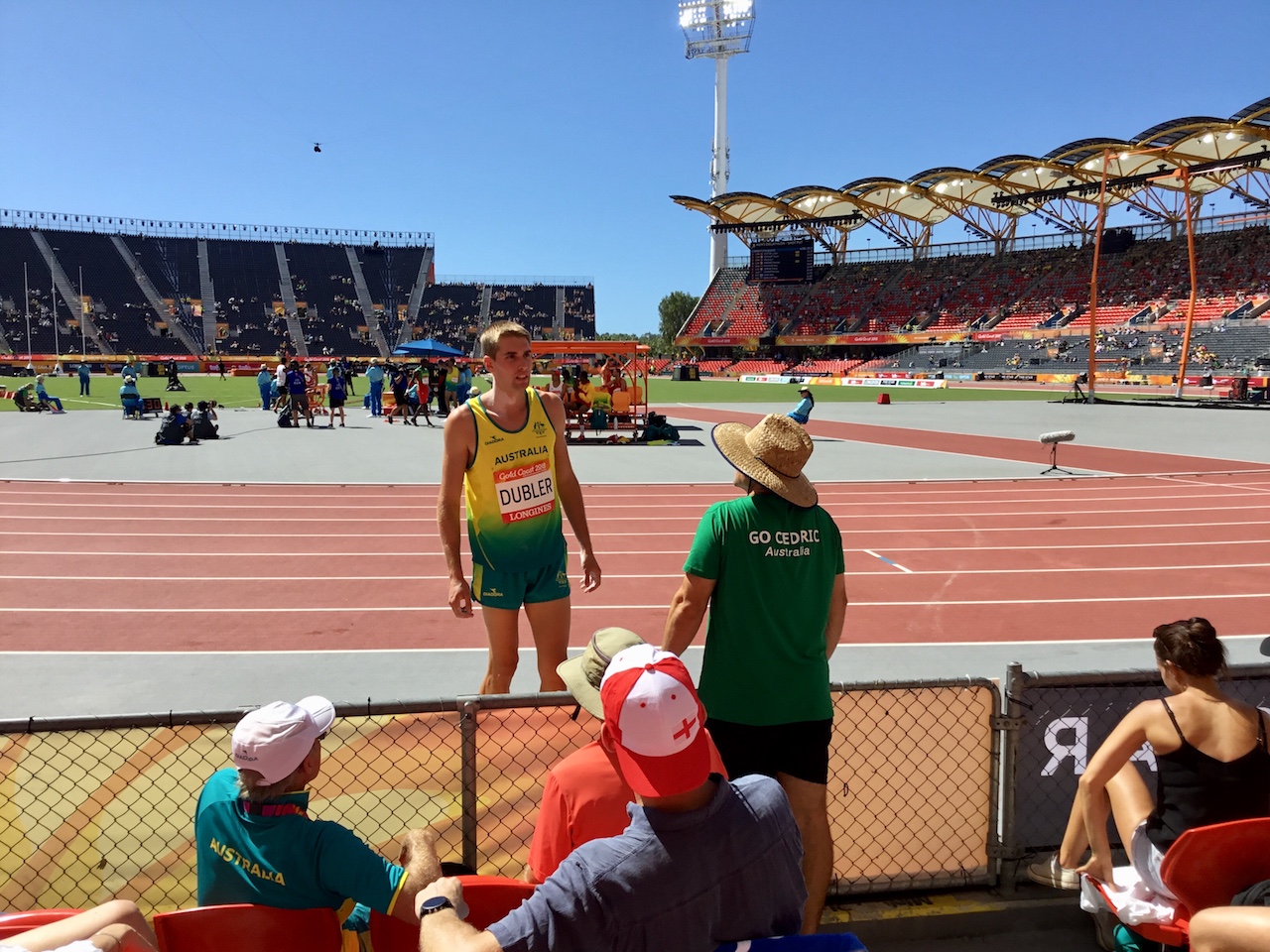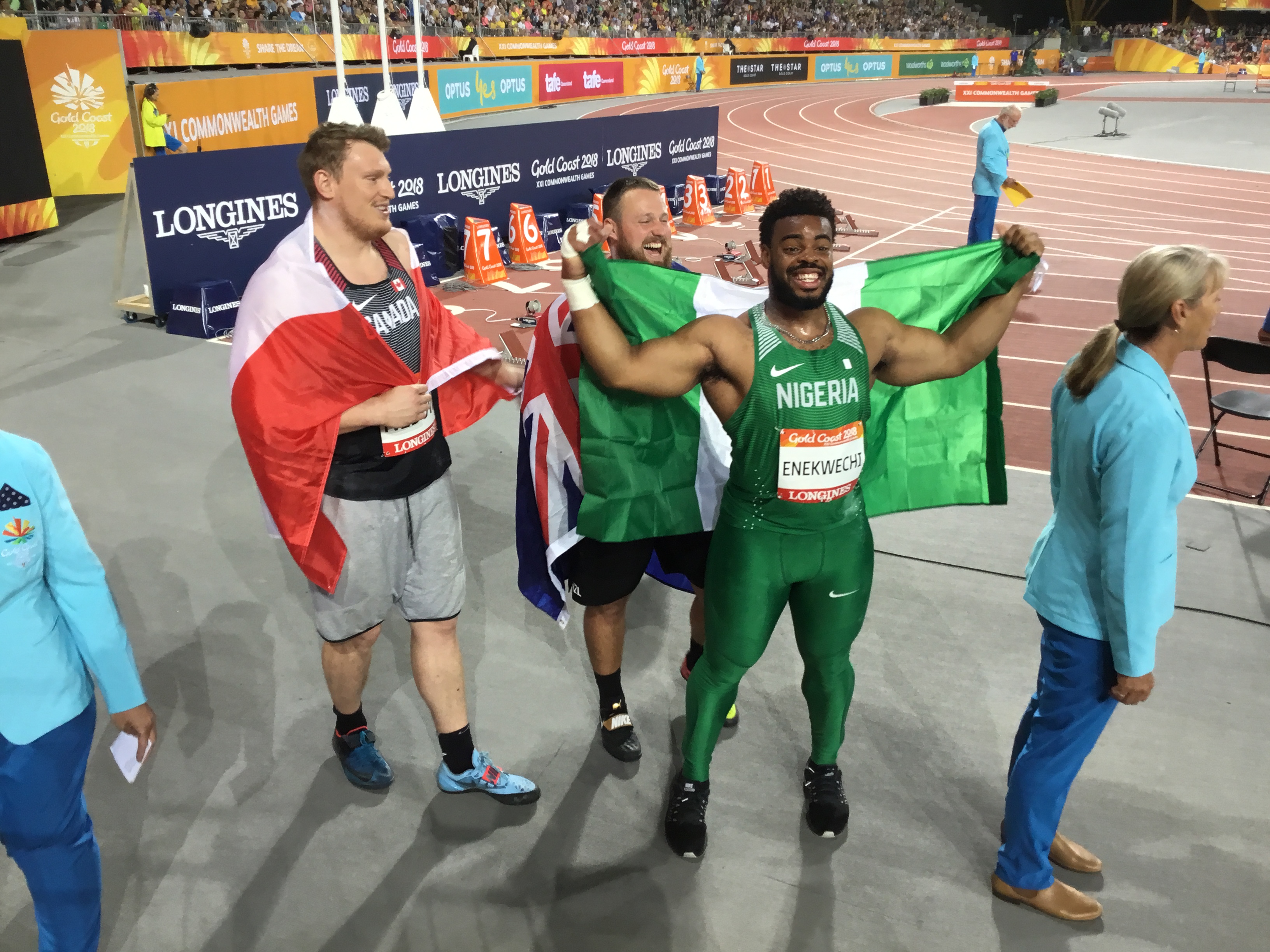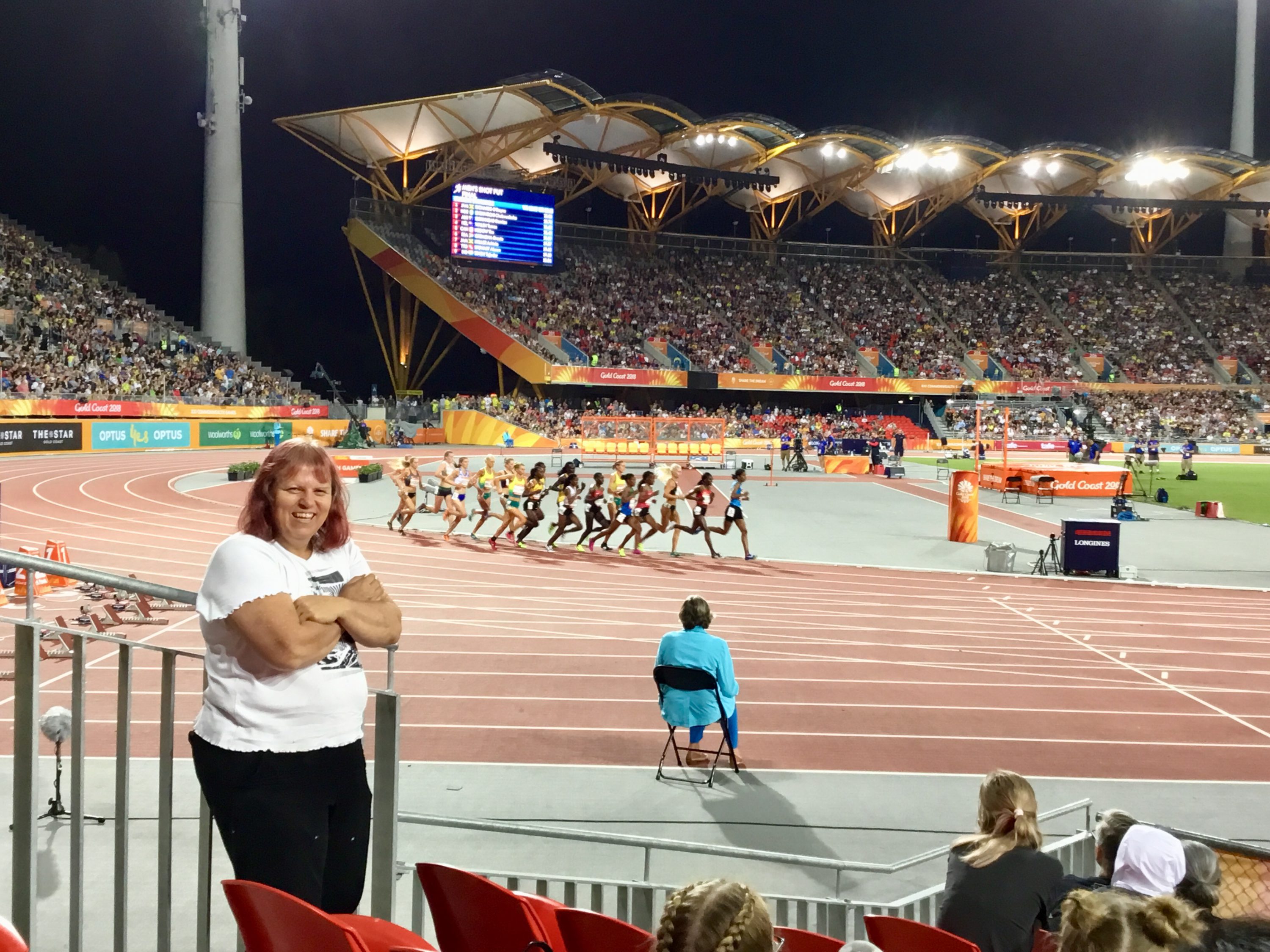The closing ceremony was a stuff-up but the Commonwealth Games deserve to be remembered as the most inclusive ever.
Hatch reporter Caroline Layt was there.
The success of an event often can be measured by its vibe – and the volunteers at Gold Coast 2018 provided a overwhelmingly positive one.
Their genuine friendliness made for a wonderfully warm atmosphere, not unlike that created by the “best ever” Sydney Olympics (2000).
Every time an Australian athlete was introduced or provided a positive sporting moment at Carrara Stadium, they were cheered wildly by the enthusiastic home-crowd.
But unlike the Olympics, the Commonwealth Games provided an added layer.
Swimming medalist, Ellie Cole, said it was really great to be a part of a the biggest para-sports program in Games history. On this issue alone the Olympics trail our Commonwealth of nations.
2018 Commonwealth Games silver and bronze medalist Ellie Cole tells @HatchMacleay and @MoreWomensGame reporter @CarolineLayt how well Para athletes were received @GC2018 @EllieVCole @susanstevo @fiona_west #gc2018swimming pic.twitter.com/ll0tyG0F1h
— Caroline Layt (@CarolineLayt) April 18, 2018
Mixing able-bodied and para-sports, gives each equal billing on the global stage and legitimises para-athletes.
There was parity in the television coverage of these events. Not so at the Winter Olympics in South Korea earlier this year where the red carpet was laid out for the able-bodied athletes, while there was a no-frills coverage of the Paralympics.
Bringing the athletes together for the Olympic Games would create parity, but is a conversation for another time. For now… kudos to the trailblazers of the Commonwealth. Flag-bearer and wheelchair gold medalist Kurt Fearnley is one of those trailblazers. He was largely responsible for the inclusion of such an extensive para-sports program.
Isis Holt, Evan O’Hanlon, Cameron Crombie and Ellie Cole are some of the Australian para-athletes who excelled on the Gold Coast and, to some, they’re household names.
And the inclusivity didn’t just extend to Para-athletes.
Also winning acceptance was South African middle distance runner Caster Semenya, who has a condition called hypergonadism. The South African won the women’s 800m and 1500m double and, despite the disapproval of IAAF President, Sebastian Coe, her participation barely raised eyebrows.
New Zealand power-lifter Laurel Hubbard created history by becoming the first openly transgender woman to compete at a Commonwealth Games. Her participation though was contentious. The rival Samoan team felt she should not have been allowed to compete. But sticking to it’s own gender inclusion policy, Games officialdom stayed strong. Hubbard didn’t medal but won over the crowd. And it was appreciated. “Without any doubt, they’ve lived up to the mantra of humanity, quality and decency,” she said.







Diversity wasn’t just reflected in the pool or in the stadium.
Throw in the Gold Coast 2018 Festival, which ran in conjunction with the Games, and there was something for everyone.
Hatch spoke to Sparkle in the Sand producer Luke Nutley. He produced the extravaganza where superstars Marcia Hines, Beccy Cole, Matthew Mitcham and Courtney Act, among others, appeared.
There was even an LGBTIQ Pride House – Australia’s first – at Cavill Avenue’s Rise Bar. It hosted a sporting trailblazers exhibition and a display of human rights in the countries of the Commonwealth. That display revealed that it’s still illegal to identify as LGBTIQ in 36 out of the 53 countries competing.
RELATED STORY: Pride House International Sporting Trailblazers Exhibition
As for the naysayers criticising the relevance of the Games on the international stage, try taking on English hockey player, Liam Ansell.
He was happy to share that he felt he should be scoring more goals… but left out that he was in the sin-bin for playing hard. That competitive streak alone shows just how much these games mean to the athletes.
Just ran into team GB hockey team on way to Surfers Paradise.
They’ve done well so far – a draw & a win.
Striker Liam Ansell (far left) says, “We’ve won one, drawn one so far.”They have pool recovery session today.@HatchMacleay #CG2018 #CommonwealthGames2018 @EnglandHockey pic.twitter.com/j1nPQ0EuF6
— Caroline Layt (@CarolineLayt) April 9, 2018
The athletes certainly didn’t take it easy. There were two world records on Day One. One in the pool courtesy Australia’s 4 x 100m women’s freestyle relay team and from Australia again at the velodrome in the 4000m men’s team pursuit. There were plenty more World Records broken by para-athletes while more than 20 Commonwealth Games records tumbled.
In his interview after winning gold, Australian pole vaulter Kurtis Marschall said: “Everyone was telling me the crowd is unreal. I didn’t believe it. Then I came out there [for my] first jump – opening height – and I couldn’t even hear myself think.
“I struggled to comprehend it,” he said. “But then I managed to get into the comp and I used the crowd, it was unreal.”
And that crowd should take a bow. It was the biggest home-crowd celebration since Brisbane 1982. The loud and vibrant cheering and the way the athletes responded to it, made Gold Coast 2018 the jewel in the crown of all Commonwealth Games. – Caroline Layt


